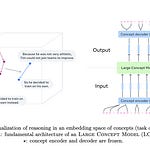Uber has introduced a new initiative for its independent contractors focused on AI training. According to a report by Bloomberg, the ride-hailing and delivery company is leveraging gig workers to enter the AI labeling industry. This move highlights Uber’s interest in expanding its independent contractor-driven business model to align with the rapidly growing field of machine learning and large language models.
The newly established “Scaled Solutions” division aims to connect businesses with “nuanced analysts, testers, and independent data operators” through its platform. This division builds on an existing internal team based in the US and India, which has been responsible for feature testing and converting restaurant menus for Uber Eats.
Uber has already been employing artificial intelligence and machine learning for its operations and is now making these capabilities available to external clients for a fee. The company is recruiting gig workers for tasks such as data labeling, testing, and localization for various companies, including Aurora, Luma AI, and Niantic.
Training AI models necessitates the involvement of numerous human workers to perform repetitive tasks. A significant aspect of AI model training involves tedious activities such as selecting the most human-like chatbot responses or labeling obstacles, like pedestrians, in self-driving car footage on a frame-by-frame basis. Companies developing AI models frequently hire workers from developing countries to carry out these tasks, compensating them with minimal payments for each completed activity. For instance, an engineer in India shared with Bloomberg that they were responsible for evaluating and rating the accuracy of AI-generated responses to complex coding problems, earning approximately 200 rupees per set, equivalent to about $2.37.
Currently, Uber is onboarding individuals from Canada, India, Poland, Nicaragua, and the US, offering differing pay rates per task completed, with earnings distributed to workers on a monthly basis. The company is also seeking individuals from diverse cultural backgrounds to enhance AI adaptability across various markets.
This initiative is not Uber's first venture into the AI space. The company previously invested billions in developing its own self-driving car technology but halted the project following a tragic incident involving one of its vehicles and a pedestrian. Additionally, in 2016, Uber acquired an AI research lab founded by cognitive scientist Gary Marcus and several other computer science professors.





